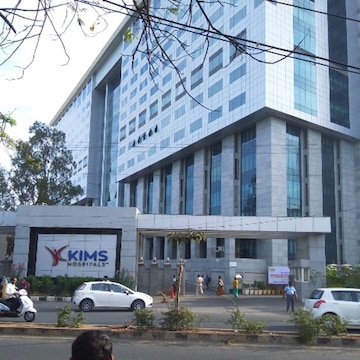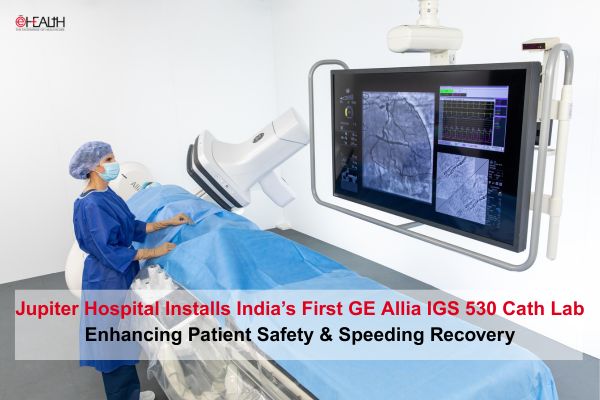
In a major leap forward for tuberculosis (TB) diagnostics, artificial intelligence (AI) is proving to be a powerful tool across both high-resource hospital environments and underserved regions. Two separate recent studies—one conducted by Krishna Institute of Medical Sciences (KIMS) in Secunderabad, India, and the other by Lausanne University Hospital in Switzerland in collaboration with healthcare providers in West Africa—demonstrate AI’s capacity to enhance TB detection, drive early diagnosis, and potentially transform public health interventions at scale.


KIMS Study Validates AI-Driven Chest X-rays for TB Detection
KIMS Hospitals, Secunderabad, has leveraged an advanced AI-based chest X-ray interpretation tool, qXR, to retrospectively evaluate 16,675 adult chest radiographs (CXRs). Conducted without direct clinician involvement, the study focused on two key metrics: diagnostic accuracy and alignment with expert radiologist interpretations.

The findings reveal that the AI solution could correctly identify non-TB cases with 97% accuracy, while also detecting TB-positive cases with a sensitivity of 88.7%. This high level of agreement with human radiologists underscores the tool’s clinical reliability. Speaking on the study’s significance, Dr. Latha Sarma, Head Pulmonologist at KIMS, highlighted the potential of such AI models to address diagnostic delays that often hamper effective TB treatment.

Echoing this sentiment, Dr. Chaithanya Isamalla, Senior Radiologist at KIMS, emphasized that AI’s capacity to assist radiologists with rapid, precise assessments is a “game-changer” in tackling one of the world’s most persistent infectious diseases.


POCUS-AI System Exceeds WHO Benchmarks in Low-Infrastructure Settings
On the other end of the spectrum, a novel AI-guided point-of-care ultrasound (POCUS) system developed under the leadership of Dr. Véronique Suttels from Lausanne University Hospital offers hope for TB detection in settings where access to radiology and laboratory services is limited.
Presented at the European Society of Clinical Microbiology and Infectious Diseases (ESCMID) conference in Vienna, the ULTR-AI model suite was tested in a clinical study in Benin, West Africa. The system leverages deep learning to assess lung ultrasound images collected via smartphone-connected POCUS scanners. These images were analyzed by three AI models—ULTR-AI, ULTR-AI[signs], and ULTR-AI[max].
The most robust model, ULTR-AI[max], recorded a sensitivity of 91% and specificity of 85%, outperforming human experts by 9% and exceeding WHO’s minimum thresholds for non-sputum-based triage tests. The study involved 504 patients, including 192 with confirmed TB. Notably, a significant portion of the participants were immunocompromised, HIV-positive, or undernourished—factors that often complicate timely diagnosis.
Dr. Suttels emphasized that ULTR-AI can serve as a frontline triage solution in primary healthcare centers lacking chest X-ray facilities or genetic testing infrastructure. The model’s portability and minimal infrastructure requirements present a scalable opportunity to decentralize TB diagnostics and improve early treatment access in remote and underserved populations.
Also Read :- International Diabetes Federation Designates “Type 5 Diabetes” to Address Malnutrition-Related Form of Disease
Implications for the Healthcare Industry
Together, these studies reinforce the versatility and potential of AI-driven diagnostics across vastly different clinical environments. Whether it is streamlining workflows in tertiary care hospitals or enabling life-saving triage in low-resource areas, AI tools like qXR and ULTR-AI are pushing the boundaries of what’s possible in TB care.
For stakeholders in the healthcare ecosystem—from diagnostic technology providers and digital health startups to public health agencies and hospital networks—these advancements offer both a roadmap and a call to action. Investments in scalable, AI-integrated diagnostic solutions can not only improve clinical outcomes but also align with global goals for infectious disease control and health equity.
As AI continues to evolve and gain validation through clinical trials and field studies, its integration into frontline diagnostic strategies will likely become a standard feature in the global fight against tuberculosis and other respiratory diseases.
Be a part of Elets Collaborative Initiatives. Join Us for Upcoming Events and explore business opportunities. Like us on Facebook , connect with us on LinkedIn and follow us on Twitter , Instagram.
"Exciting news! Elets technomedia is now on WhatsApp Channels Subscribe today by clicking the link and stay updated with the latest insights!" Click here!
















